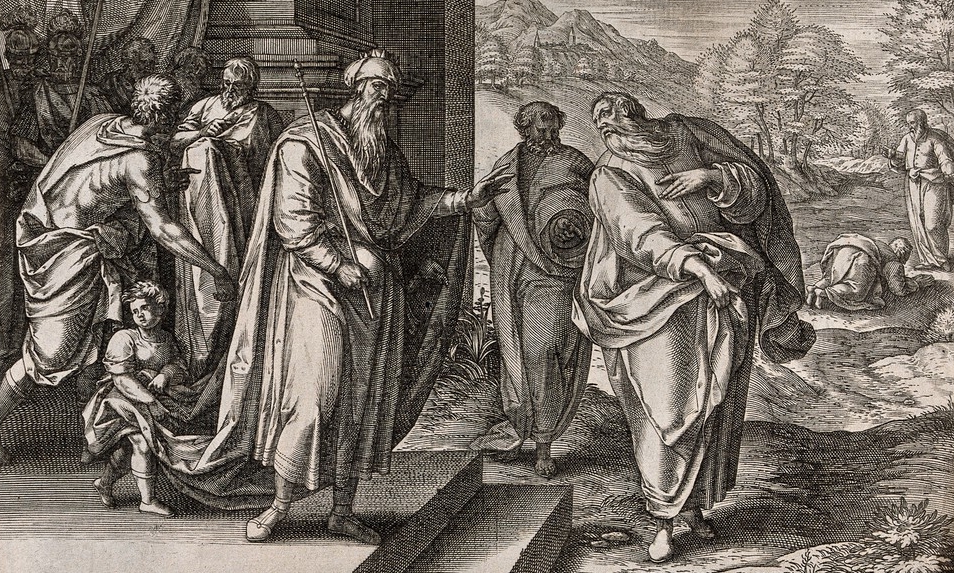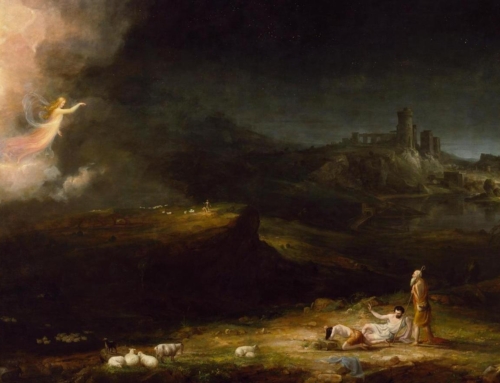The Prophet Elijah is a warrior for the Lord. The first action the Scriptures attribute to Elijah is anything but gentle. Without more introduction than his name and place of origin, he speaks, “As the LORD, the God of Israel, lives, whom I serve, during these years there shall be no dew or rain except at my word” (1 Kgs 17:1). Nothing endears a country to you quite like inducing drought and famine. What was he doing though?
Elijah arrives on the scene in Israel several generations after the death of King Solomon and the split of Israel into the northern kingdom (called Israel) and the southern kingdom (called Judah). The southern kingdom is ruled by King David’s descendants, but the northern kingdom has passed from dynasty to dynasty. At the time of Elijah, the king is Ahab.
Ahab, son of Omri, did what was evil in the LORD’s sight more than any of his predecessors. It was not enough for him to follow the sins of Jeroboam, son of Nebat. He even married Jezebel, daughter of Ethbaal, king of the Sidonians, and began to serve Baal, and worship him. (1 Kgs 16:30–31)
Baal, needless to say, is not the Lord, the God of Abraham, Isaac, and Jacob. Baal did not save the Israelites from slavery in Egypt. Baal neither gave them the Law nor led them to the promised land. Baal is no god at all. He only arrived when Queen Jezebel brought with her from Sidon her false worship and hundreds of false prophets. They believed Baal was a storm-god, the bringer of rain and thereby the bountiful harvests. Jezebel and her prophets turned Ahab and the Israelites away from the Lord and to Baal.
Elijah declares war on Baal. His prophetic word challenges the power of this false god. Through Elijah, the Lord is waging a campaign to reconquer the land of Israel. His opening move manifests the vanity of Baal. There is one Lord of the heavens and the earth, who declares the time for rain or drought. The drought testifies that the power of that worthless idol is nothing in the face of almighty God.
Before the drought ends, Elijah summons all of Israel, including the false prophets of Baal, to Mount Carmel for a showdown. “How long will you straddle the issue?” he demands. “If the LORD is God, follow him; if Baal, follow him” (1 Kgs 18:21). The Lord is not satisfied with asserting his dominion over the sky. He wants his people, his children, to return to him. The true battleground is in the heart. So, when it is Elijah’s turn to offer sacrifice, he prays,
“Answer me, LORD! Answer me, that this people may know that you, LORD, are God and that you have turned their hearts back to you.” The LORD’s fire came down and devoured the burnt offering, wood, stones, and dust, and lapped up the water in the trench. Seeing this, all the people fell prostrate and said, “The LORD is God! The LORD is God!” (1 Kgs 18:37–39, emphasis added)
The Prophet Elijah is a warrior, zealous for the Lord’s reign in the hearts of his people. He knows that there can be no true compromise with the obstacles to the kingdom of God. We cannot straddle the issue. Since the Lord is God, we must follow him.
✠
Image: Anonymous, Elijah is led to his confrontation with King Ahab from the Wellcome Collection (CC BY 4.0)







